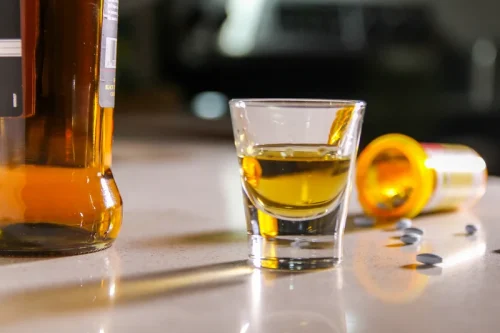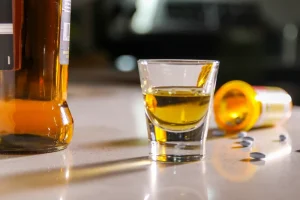Defining Sobriety: What Does It Mean To Be Sober?

Delirium Tremens is a very severe condition usually only experienced by heavy or long-term drinkers and can be quite rare. Those who make the decision to quit drinking should be commended and celebrated for their efforts. Still, there are general markers that those in recovery should be on the lookout for in their own behavior, as well as signs that loved ones and friends may also be able to identify. According to the World Health Organization, there is no safe level of alcohol consumption that does not impact health.
Control your environment
- The brain changes may affect various manifestations of this abstinence disorder and precipitate the onset of numerous mental health issues.
- Depending on the type of dependency, PAWS can last from six months to two years after you stop using drugs or alcohol.
- If you have finally chosen to live a life free of alcohol, then there are people and rehab centers that can help you in the journey.
- Staying sober requires ongoing self-reflection, accountability, and a willingness to grow.
You might also sober alcohol meaning consider joining a support group, attending sober curious events, or visiting a sober bar or coffee shop. Often referred to as “generation sober,” the millennial generation has embraced sober curious culture and has actually made sobriety more culturally acceptable. Sober curious is a term that means questioning your relationship with alcohol and thinking about trying sobriety, even if you are not ready to commit to it.
When Does Alcohol PAWS Peak?
- Depending on the severity of the person’s condition, it may take months to become stable and advance through all the alcoholic recovery stages.
- Instead of drinks at weekend brunch or Friday night cocktails, create new traditions, such as potlucks, movie nights, or a post-work walk.
- If you asked the average person to define sobriety, you would mostly get descriptions of complete abstinence from drugs and alcoholic beverages.
You might think that you know what to do if you relapse, but you really don’t. You could try to hide the fact that you drank or used drugs, but that makes things worse. Excessive drinking affects the frontal lobes of the brain, impairing judgment, aggressive behavior, Frustration, , compulsive behaviors, irrational thinking, and lack of impulse control. As you stop drinking, your frontal lobe regenerates, leading to better judgment, rational thinking, and improved impulse control. This regeneration of the frontal lobes occurs over several months after you stop drinking.

How Do Relapse Prevention Strategies Differ Between Sobriety and Abstinence?
- The signs can be similar to late symptoms of alcohol withdrawal, which include irritability, depression and loneliness.
- For some, sobriety means complete abstinence from all substances, including alcohol, drugs, and sometimes even nicotine and caffeine.
- Many people battle with lapses and relapses during their recovery journey.
- They are only considered dry drunks if they don’t try to commit to rehab, therapy or self-help programs.
- A dry drunk is essentially a person who is sober, meaning he or she has stopped drinking altogether, but they are still exhibiting many of the same behaviors as when they were still drinking alcohol.
- If they cannot cope with negativity healthily, they feel compelled to reach out for a drink.
- These synonyms help us contextualize sobriety beyond its basic definition.
According to a February article in the New York Times titled “What Does Being Sober Mean Today? For Many, Not Full Abstinence,” to be sober previously meant totally abstaining from alcohol and all other intoxicating substances. Tailored treatment programs and follow-ups are often a part of recovery success.
- So when this doesn’t happen or happens too slowly, discouragement, frustration, and depression set in.
- You may find yourself liking this new sobriety thing, as you’ll feel and look better from the inside out.
- In your pursuit of sobriety, don’t hesitate to seek professional help and use available resources to bolster your journey.
- They may refer to these people as high-risk patients because they have a high risk of relapse into alcoholism.

In addition to learning how Drug rehabilitation to manage these emotions, group therapy teaches participants how to handle stressful situations better. If someone gets upset at work, they don’t have to bottle up their anger; they can express themselves freely and safely. This gives them a chance to practice coping skills they learned in rehab. Heavy drinking over long periods of time has serious consequences – it can cause permanent changes in your brain. These changes include the shrinking of certain parts of the brain, such as the hippocampus, which plays a role in memory formation.
What Is Sobriety?
It’s about healing emotionally, building healthy relationships, pursuing fulfilling activities, and maintaining your physical and mental health. True sobriety involves committing to personal growth and finding purpose beyond alcohol or drugs. Real recovery involves overcoming the psychological afflictions that led to addiction in the first place. Whether that is addressing a mental health illness, unhealthy coping skills, trauma, PTSD, and other behavioral issues, it is crucial to the recovery process.
The Social Drinkers, Dry Drunks & Sober Alcoholics

It’s about rediscovering life without the haze of substances, where every emotion and experience is raw and real. Wanting to be clean and sober is a goal for many who struggle with addiction but reaching out for help can seem scary. A person who experiences addiction to drugs or alcohol but is currently not using them can be described as clean. They may be looking for drugs or alcohol, but can’t afford it or find it. Or they might be attempting to quit using drugs or drinking alcohol and have started racking up time being sober. However, there is a vast difference between being clean and sober.
Identify your reasons for drinking
The dry drunk will take it as a predetermined outcome that they’ll fail in recovery and assumes a “why bother” attitude. This kind of self-defeatism makes failure a self-fulfilling prophecy and confirms doubts about the treatment and recovery process. By the time addiction fully develops, drug use can be deeply ingrained in a person’s psyche. This does not mean that the prospects for recovery are hopeless for someone with dry drunk syndrome—but it makes them harder to achieve when recovery is already a difficult process. In early sobriety, it’s important to recognize that there will be a lot of emotional turbulence.
What Does Emotional Sobriety Mean?
What matters is your response and the strategies you employ to get back on track. When examining sobriety, it’s helpful to consider synonyms that capture its essence. Synonyms provide a broader understanding and are particularly useful when discussing sobriety’s different aspects. People should not attempt to alleviate their symptoms of PAWS by self-medicating. Always consult a medical professional first to get the right treatment advice. The syndrome often incorporates deleterious cognitive changes, which impair normal academic and professional functioning.

What Are The Three Pillars of Recovery and Sobriety?
This means not partaking in the addictive substance (like drugs or alcohol) or engaging in the addictive behavior (such as gambling or binge eating) at all. Abstinence is often the initial step in addiction recovery programs and is considered a necessary condition for the treatment of many forms of addiction. It’s much easier to excuse dry alcoholic behavior by insisting that habits are under control or no real harm resulted. Thinking that you’ve always got control of the situation when it’s clear to others that this isn’t so is a sign that you may be a dry drunk, whether you realize it or not.
